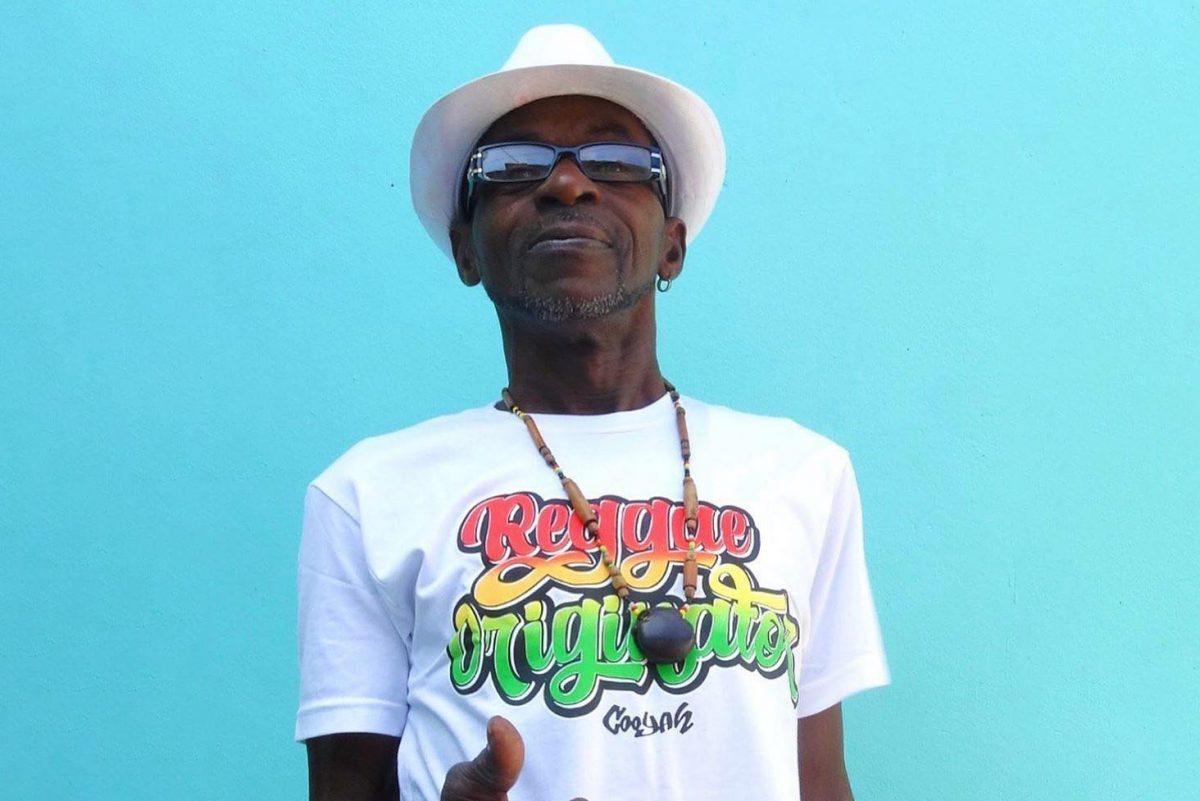Exclusive: Drake Released New Song ‘Blue Green Red’ Without Clearance, Says Jamaican Producer Clevie Browne

Canadian rapper Drake could face a second lawsuit from Jamaican producer Cleveland ‘Clevie’ Browne over his latest track, Blue Green Red. The song allegedly interpolates lyrics and melody from Dancehall artist Tiger‘s 1991 hit When without permission.
Blue Green Red was initially shared last week as part of Drake’s “100 Gigs for Your Headtop” dump of unreleased music and behind-the-scenes content, per HipHopDX. It was then officially released on Saturday (August 10) via OVO/Republic Records, a division of UMG Recordings, Inc.
Clevie, who produced When as part of the duo Steely & Clevie, told DancehallMag on Monday, “SONY/EMI [his publishers] called on Friday and said they were seeking clearance for When but they did not send the song. We can’t clear a song without hearing it. But Drake went ahead and leaked it before. The record company [UMG] blocked Drake’s release and then went ahead and released the song over the weekend without us giving any clearance. Because they did this before the fact, that can mean problems.”
He added, “They used the melody just in a section, and it was repeated twice. So this is a clear infringement.”
The interpolation is evident in Drake’s post-chorus line, “What the clock inna London? Yeah, Big Ben,” which echoes Tiger’s original lyric, “Weh di clock inna London name? (Big Ben).”
This potential legal issue comes as Steely & Clevie Productions is already involved in an ongoing copyright infringement lawsuit filed in a California federal court against over 160 artists and record labels, including Drake and UMG. In that suit, Drake’s One Dance with Wizkid and Kyla and his Mía collab with Bad Bunny are among the over 1,800 tracks accused of infringing on the duo’s 1989 riddim, Fish Market.
Clevie acknowledged that it is common for music companies to wait until the 11th hour before seeking clearance on songs.
“They often wait till the last minute to seek clearance. But we need to know the frequency of how the work is used, so that we can know the level of infringement to evaluate what is reasonable in terms of copyright share.
Efforts were made to get to us, but it is the record company’s responsibility to clear the song,” he said.
Interestingly, Clevie shared he found out on Monday (August 12) that Usher and Nicki Minaj had previously used When in their 2014 song, She Came II Give It II U. “There is a three year statute of limitations on songs but there is a non-discovery rule if you can prove that you never heard the song, and sometimes a court will accept that,” he said.
Minaj had previously cleared a sample of Sasha’s Kill the B-tch for her single, Beam Me Up Scotty with Steely & Clevie’s publishers.
Clevie explained the finer points of music publishing as they relate to the musical composition of songs and authorship.
“When we make music and an artist writes songs on a rhythm, people often think that it is the author who is the only one to receive recompensation, it is not so. When they infringe on a song, it affects the composition and authorship of the song as it relates to the share of the publishing rights. With When, Steely and Clevie built the rhythm, but we also compose lyrics, we are also authors,” Clevie explained.
Tiger
Tiger suffered a stroke in 2021.
Efforts to get a comment from artist Rhialty, his daughter, proved futile.
The 64-year-old artist was known for his distinctive growl and manic delivery, which powered a string of huge hits in the late 1980s, including songs such as Wanga Gut, Puppy Love, Bam Bam, and Ram Dancehall. He appeared to fall off the scene for a few years.
Then, in 1991, he reunited with Steely & Clevie for Cool Me Down and then the magical, almost ubiquitous hit When which restored his presence within the reggae world. Not long after, Tiger’s first album for a major American label — Claws of the Cat on Sony Music’s Chaos subsidiary — was released.
“We wrote When in half an hour, we did the riddim and Tiger was searching songs, when someone call him about a show and HE kept asking them ‘when?’,” Clevie reminisced.
“Tiger was asking like ‘when is the show? When?’, but we couldn’t hear the other part of the conversation, and Steely heard the ‘when’ and said ‘that is it, mek we do a song based on ‘when’,” he added, chuckling.
The master producer said that the song was made based on a life experience, similar to how he and his late musical partner were able to compose Double Trouble with Beres Hammond.
“I remember we were at Mixing Lab one night from after 9 till about 3 a.m. and we couldn’t find the song. Then it was a few minutes to three and Steely say ‘I have it’. And he began to sing, ‘now look at me, it’s a quarter to three/I want to go home, that’s where I should be…’. Then Beres added some lines, I added some lines, and it was composed off a real situation,” Clevie recounted to DancehallMag.
“We all have something to say, if we have life experiences that people can relate to. The hits simply represent an experience that resonates with a broader cross section of people,” he said.


